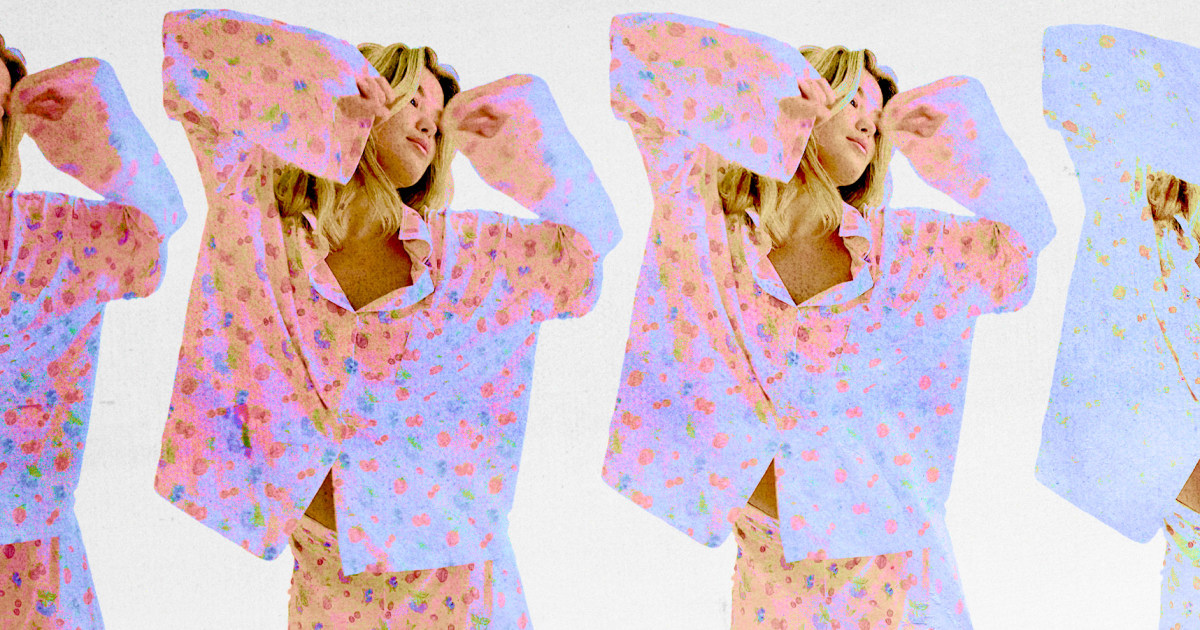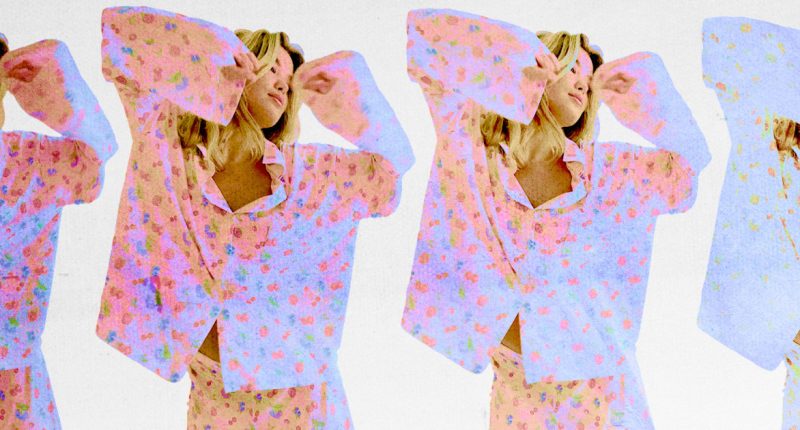
An influencer set off a debate on the ethics of promoting replicas on TikTok after her team requested the platform take down videos featuring dupes — duplicates of brand-name products — of her brand’s fruit print pajamas.
Matilda Djerf has been a fashion influencer for nearly a decade, and when she launched her brand Djerf Avenue in 2019, she gave fans an opportunity to buy her lifestyle directly. But over the past month, some fans have soured on Djerf, after smaller creators said her company took down their videos mentioning dupes of her clothing line, citing copyright infringement.
Dupes typically sell at more affordable prices than the originals. Though dupes have been around for years, dupe videos have skyrocketed in popularity on TikTok in recent months, stirring debate over buying low-quality copies. Dupes can be more accessible to consumers with lower budgets, but some critics believe that they encourage design theft and contribute to fast fashion waste.
Some experts, including fashion creators, say it’s difficult to enforce intellectual property and copyright law in fashion, even for big designer houses. Djerf’s designs are also similar to and inspired by other brands’ pieces in her own wardrobe, critics argued, which made the copyright strikes seem “hypocritical.”
Several TikTok creators posted videos this month sharing that their videos mentioning dupes of Djerf Avenue pajamas had been taken down. Two creators said the Djerf Avenue team took down their videos praising the original garments in comparison to the dupes, causing outrage toward Djerf and her team.
Critics believe that Djerf’s team was wrong to punish smaller influencers, rather than manufacturers, over the dupes. Several people were shocked that trademarking videos featuring dupes, which are a popular genre of TikTok content, was allowed. The hashtag #djerfavenuedrama on TikTok has amassed 1.5 million views.
“This is low-key scary that they can do this,” one commenter said under a video about the incident.
A representative for Djerf Avenue said that the company has seen a recent “surge” in websites selling items with its trademarked prints. It has an external intellectual property firm that monitors instances of copyright infringement.
The IP firm “inadvertently impacted individual accounts,” the representative said in an email statement.
“We have promptly instructed our IP firm to stop reports from individual accounts and focus on third-party sellers of these items. Instead of reporting the individual accounts, we will reach out to the responsible party behind the accounts when we see suspicious pirate copies and have a dialogue with the content creator.”
The TikTok community guidelines prohibit “posting, sharing, or sending any content that violates or infringes upon someone else’s copyrights, trademarks or other IP rights.”
Djerf Avenue posted a similar statement on its Instagram Story on Oct. 7, but it didn’t stop the backlash. Djerf briefly deactivated her personal TikTok account because of the controversy and has not publicly responded to the criticism. The strikes fueled additional criticism toward Djerf and her brand, with people saying she was selling overpriced basics and alienating fans who wanted to emulate her style on a budget.
“It kind of galvanized her community around wanting to actually purchase these dupes kind of in defiance of what they felt were unnecessary copyright strikes,” Mosha Lundström Halbert, a fashion journalist and host of the podcast “Newsfash,” who made a TikTok about Djerf Avenue, said in an interview.
Lundström Halbert said that targeting people in Djerf’s community, rather than the producers of the actual dupes, was like “biting the hand that feeds you.”
“You want to influence people to be inspired by your style, but you want to direct that tunnel of inspiration traffic only directly to your own channels and your own site,” Lundström Halbert said. “But the thing about the internet is you can’t really do that.”
Lundström Halbert said the fruit print of the Djerf Avenue pajamas isn’t particularly original, so any slight variance in the dupes’ prints would make it hard to enforce a trademark claim. She added that it is difficult to enforce IP and copyright law in fashion, even for big designer houses. She said attempting to do so on TikTok, where there is a big community around Amazon dupes, backfired for Djerf Avenue and only raised more awareness about the replicas.
While the strikes garnered a lot of backlash, some people defended Djerf’s team on TikTok.
Lucinda Pikkat, a content creator and public relations consultant, said in a TikTok that Djerf didn’t deserve the backlash she was receiving. She commended Djerf for taking a stand against her designs being copied.
“It’s basically a counterfeit of her product, and I don’t think that’s fair or right for any company,” Pikkat said in an interview.
While she doesn’t believe the copyright strikes were the best public relations move, Pikkat said that much of the criticism toward Djerf and her brand overlooked the issue of design theft. She said that Djerf understands that people draw inspiration from influencers like her. But there’s a difference between taking inspiration from a person and ripping off their work, she said.
“People are profiting off Matilda’s brand by showcasing in a TikTok that they’ve found a dupe,” Pikkat said. She added that it could be “frustrating” for Djerf to see others capitalize off of her.
Lundström Halbert said the incident raised the question of who is responsible for proliferating knockoffs. She said some influencers with brands, like Djerf, have unrealistic expectations about imitation.
“If you are an influencer, by very nature, you are trying to persuade people to be like you in a number of different ways, which will encourage copying,” Lundström Halbert said. “If she’s trying to inspire other people to aspire to her lifestyle, the thing about aspiration is not everyone can afford it.”
Dupe culture isn’t new, nor will it end anytime soon. Lundström Halbert said it’s an issue in many industries beyond fashion. While dupe culture is popular, she said that owning the real product often feels different and more intentional. Dupes, as demonstrated by some of the copyright struck videos, can even highlight the quality of an original product.
“It’s interesting to experiment with duplicates, and seeing that it really doesn’t necessarily always save you money because sometimes all it does is reinforce the real thing,” Lundström Halbert said.
Source: | This article originally belongs to Nbcnews.com










